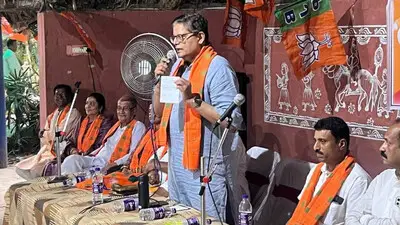Recommended Stories
New Delhi: The Supreme Court on Tuesday dismissed a curative petition by 1993 Mumbai serial bomb blasts convict Yakub Abdul Razak Memon, who will hang on July 30.
Memon had challenged the earlier verdict of the apex court to uphold his death sentence.
Rejecting the curative petition, a bench of Chief Justice H.L. Dattu, Justice T.S.Thakur and Justice Anil R. Dave said that "none of the grounds stated in the curative petition would fall within the parameters" involving the violation of the principle of natural justice and apprehension of bias.
The curative petition was taken up in the chambers.
Official sources earlier said Memon, 53, will be hanged on July 30.
He is likely to be be hanged in the Nagpur Central Jail, where he is currently lodged, following the rejection of his mercy plea in April this year by the president.
He was sentenced to death by a special TADA Court in Mumbai on July 27, 2007, for his role in the blasts, including arranging finances for carrying out the 13 serial explosions which left 257 dead and over 700 injured across the city on March 12, 1993.
Subsequently, Memon - brother of one of the main absconding accused, Ibrahim alias Tiger Memon - appealed against the sentence in the Bombay High Court, the Supreme Court and later filed a mercy petition with the President, followed by a review petition, and then a second review petition.
The apex court April 9 had dismissed Memon's review petition seeking the recall of its March 21, 2013 verdict upholding his death sentence.
Dismissing his review petition on April 9, the court had said: "We find that all the arguments advanced by the review petitioner have been considered in detail in the judgment (of March 21, 2013) which is sought to be reviewed. Hence, we do not find any error apparent on the face of record or any other ground so as to warrant interference in exercise of our review jurisdiction."
The apex court by its March 21, 2013 verdict, while upholding the death sentence, had said that his "deeds can't be viewed distinct from the act of Tiger Memon, hence, both owe an equivalent responsibility for the blasts" that led to 13 serial bomb blasts in Mumbai.
"They were the architects of the blasts, without whom the plan would have never seen the daylight. From this conduct, it is not hyperbole to state that, he (Memon) was one of the 'driving sprit' behind the plan of the 1993 blasts, whereas the other appellants played a far lesser role and thus a lesser contribution to the crimes resulting from this plan", the court had said.
The court had then held that the dominant position that Yakub Memon held in the execution of serial blasts was an "aggravating factor by itself, as it gives the status of direct responsibility". "Since Yakub Memon as well as other absconders were the real conspirators who hatched the scheme for such a tragic act, the other 10 appellants awere mere subservient subordinates whose knowledge and acquaintance might have been restricted to their counterparts."
"It is difficult to rule out with certainty that if the absconding accused (Dawood Ibrahim, Tiger Memon and Ayub Memon) were to be brought to trial, they might have thrown further light at the role played by Yakub Memon," the court had observed in 2013.
The apex court on April 9 had dismissed Yakub Memon's plea for the review of death sentence verdict for the second time as it had earlier dismissed his similar plea seeking the recall of March 21, 2013 verdict.
Memon's plea for the recall of his death sentence verdict was rejected earlier too, but it was taken up once again as the constitution bench, by its September 2, 2014 judgment, had said that review pleas in death sentence cases would be heard in the open court by a bench of three judges.
It also ruled that this "will also apply where a review petition is already dismissed but the death sentence is not executed so far. In such cases, the petitioners can apply for the reopening of their review petition within one month from the date of this judgment".













